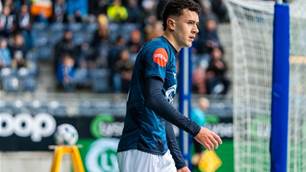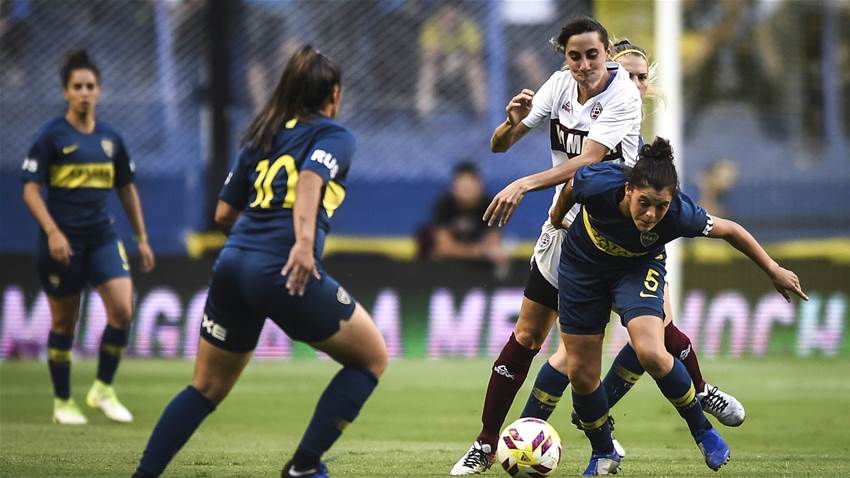It was a historic moment for Argentinian female footballers as the Argentine Football Association (AFA) announced the launch of the countries first professional women's league.
On Saturday, President of the AFA Claudio ‘Chiqui’ Tapia confirmed the establishment of a professional league which will see the federation support the country's first 16 clubs.
This will see the Federation provide teams with pitches that don't have their own facilities.
"I feel great joy, we will be one of the first federations with professional players, I want to thank all the leaders for accompanying this decision," he said.
"This association has only one commitment, to make football better, we will continue working to develop women's soccer in all the provinces."
#FútbolFemenino 🎙 Claudio Tapia: "Para el próximo torneo, la AFA le va a brindar sus instalaciones a los equipos que no tengan cancha para que puedan jugar aquí". pic.twitter.com/0xE7UogKNe
— AFA (@afa) March 16, 2019
Clubs will have 60 days to register at least eight players on professional contracts.
The current semi-professional league has 16 teams but the AFA have not yet announced how many would be part of the new competition which is set to start in June.
The announcement also saw the AFA promise more attention for is female footballers, including the creation of a high-performance centre.
Prior to this announcement, steps were made towards bettering women's football in the country including the women's national team training and using the same facilities as their male counterparts, but one thing lacking was the resources for a professional league.
Low or something unpaid wages meant players could not make a living playing the game they love.
In January 2018, news agency Al Jazeera followed Buenos Aires side, UAI Urquiza, to highlight their fight for equality in a football-mad country.
Since then, former player Macarena Sánchez took legal action against the club and AFA for not recognising her as a professional player. The team, which beat the likes of River Plate and Boca Juniors to win the title last season and qualify for the Copa Libertadores paid players about 400 Argentinian pesos a month for travel.
The club did not cover basic necessities like training clothes, food or treatment for injured players. This was all happening while their men's side, who are in the third division, was able to make a living playing football.
On Twitter Sánchez responded to the news:
El fútbol femenino es profesional. Es el primer paso y fue TODO NUESTRO. De las que ya no juegan pero igual se sumaron a reclamar y de las que están jugando y no dejaron de bancar la lucha a pesar de las presiones. #FutbolFemenino #FutbolFemeninoProfesional
— Maca Sánchez (@Macasanchezj) March 16, 2019
"Women's football is professional. It is the first step and it was ALL OURS. Those who no longer play but still joined our fight and those who are playing and did not stop the fight despite the pressures," she wrote.
She continues: "Thanks to all those who committed themselves to the fight, accompanying and understanding the claim.
"We will continue to suffer great inequalities, but we will also continue to play and fight."
This is only the beginning for women's footballers in Argentina.
Related Articles

Champion A-League coach set to join Premier League giants

Emerging Socceroos star set to sign for MLS club













